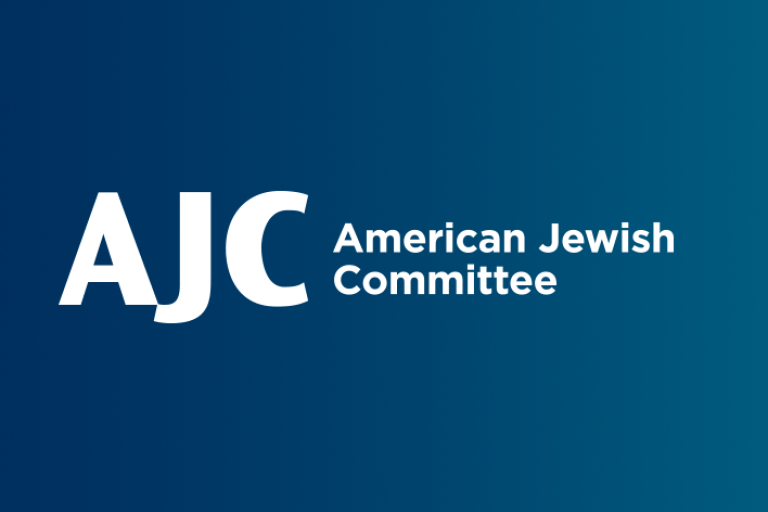September 10, 2024
The following letter was sent to the individuals at the following social media and technology companies:
- X, Linda Yaccarino
- TikTok, Shou Zi Chew
- Meta, Mark Zuckerberg
- YouTube, Neal Mohan
- Snap, Inc., Evan Spiegel
- Reddit, Steve Huffman
We, the undersigned [1], write to express deep concern about the prevalence and impact of online antisemitism, support for terrorism, and mis/disinformation about Jews and Israel on social media. These acts have increased exponentially since the unprovoked attacks on Israeli citizens by the Iran-backed terrorist organization Hamas on October 7, 2023, the single deadliest day for Jews since the Holocaust.
The Islamic Republic of Iran, its proxies including Hamas and Hezbollah, and their supporters around the world continue to use social media to spread antisemitism and celebrate the October 7 massacres. Antisemitic incidents have increased in real life, and Jewish communities around the world continue to live under heightened security. These numbers reflect a troubling trend: terror against Israel is linked with increasing antisemitism against Jews around the world, both in person and online.
It is the obligation of tech and social media companies to keep users safe from violative content, including that which praises, glorifies, or otherwise expresses support for terror groups. Failure to remove extremist content, especially in a time of increased violence, is a direct affront to the companies’ published community values and a violation of the public’s trust.
AJC’s State of Antisemitism in America 2023 Report revealed that 62% of American Jews have seen or heard antisemitism online or on social media in the past year. Among Jewish adults who experienced antisemitism online, more than one in five (22%) said it made them feel physically threatened. Furthermore, almost three in 10 (30%) of all American Jewish respondents avoided posting content online that would identify them as Jewish or reveal their views on Jewish issues.
Since the terrorist attack in Israel, extremist antisemitic digital content which applauds terror has increased exponentially.
Despite the fact that attacks against Jews and Israelis violate platforms’ rules of conduct, Iranian leader Ayatollah Khamenei continues to use social media to applaud the violence against Israel. Hamas also has publicly declared its intentions to eliminate the Jewish state and its people. Yet social media users, especially young users, are confusing supporting the Palestinian people with supporting Hamas, and sharing the vile content of the terrorists.
There are not two sides to antisemitism.
Antisemitism is not only a problem for Jews. It is a societal challenge. Almost four in ten (39%) U.S. adults reported personally seeing antisemitism in the past 12 months, and 68% of them saw it online or on social media.
As the data reveals, the primary fight against antisemitism must take place in the digital world. In this dark moment, tech, social media, and entertainment companies have a major responsibility to ensure their platforms are not used as launching pads for conspiracies, antisemitism, and hatred. We urge these companies to implement recommendations outlined in AJC’s Call to Action Against Antisemitism in America, especially now. Specifically, these companies should act urgently to:
Ensure consistent moderation and improve moderation systems | Social media companies must continue to enforce their policies on Dangerous Organizations and Individuals (DOI) and not allow praise of terrorism on their platforms. Moderation systems can be improved and harmonized to ensure moderators are accurately and equally implementing these policies and community standards, especially in different languages and cultural contexts. In addition, in the rapidly evolving space of online antisemitism—which relies on memes, coded language or images, and implicit speech—non-human regulatory models are not fast enough. Social media companies should integrate the International Holocaust Remembrance Alliance (IHRA) Working Definition of Antisemitism into their policies to regularly train content moderators on the various forms of contemporary antisemitism. By explicitly covering antisemitism in their terms of service and community standards, social media companies can improve their own moderation systems and more effectively ensure the safety of Jewish users on their platforms. Social media companies should also invest seriously in the human and technical resources necessary to enable vigorous, timely enforcement of their terms of service and community standards. This will allow social media companies to better provide their users with harassment-free spaces and empower their users to take part in the fight for healthy discourse online.
Make it easier for users to report antisemitism | For American Jews who experienced antisemitism online or on social media in the past 12 months, only 35% reported the incident. The majority (65%) did not report. This may be why most American Jews (90%) say it is important for social media companies to make it easier to report antisemitism specifically. To mitigate these issues, list antisemitism as an independent option for users to flag when reporting harmful content. In addition, one-to-one reporting is too slow and better technology embedded in the platform/product to counter antisemitism is needed. Companies must also address the increasing challenge of inappropriate mass reporting. Jewish users and Jewish accounts have been harassed and mass-flagged, even when they did not do anything wrong.
Push out or redirect users to accurate information | Respond by actively taking part in the fight against mis/disinformation by amplifying accurate material and providing context to their users for material that is more suspect but still remains on their site. Companies should support AI-enabled educational tools that push out accurate, verifiable information, which would encourage prosocial behavior and curbs the spread of antisemitism.
Prevent algorithmic bias | A dangerous trend among social media companies has been the recommendation of hateful or inaccurate content to users who may not have otherwise been exposed to such hateful or biased media. Social media companies need to implement bolstered algorithmic capabilities which will effectively stop recommending, and de-rank, antisemitic, hateful content.
Improve policies | Social media companies should ensure clear community standards which indicate antisemitic speech is not permitted on their platforms, and ensure these policies are updated as antisemitism morphs and changes, including conspiratorial antisemitism and anti-Israel antisemitism. For example, the call to “Globalize the Intifada,” a phrase seen increasingly online and on social media, incites violence against Jewish people and should be designated as such. For additional guidance, social media companies can turn to the U.S. National Strategy to Counter Antisemitism, to which AJC contributed. Clarified and expanded policies on antisemitism will help content moderation and positively affect the health of the company’s business by ensuring advertisers and brands are confident their products will not be posted next to hateful, bigoted content.
Ensure transparency | Social media companies should ensure transparency in the drafting of policies, algorithms, and moderation systems and abide by a set of core principles that will earn the public’s trust. Social media companies must correct algorithms which allow hate to cross-pollinate and grow. One way social media companies can signal their commitment towards transparency and their commitment towards a safe online space for Jewish users is by treating antisemitism as a unique category in transparency reports. This effort signals to the Jewish community companies’ understanding that antisemitism functions as a distinct hatred on online platforms.
Establish new positions | Social media companies should each hire a point person focused on the Jewish diaspora to both listen to the concerns of Jewish communities around the world and to work with senior leadership within the company to drive structural changes that will ensure antisemitism is understood, recognized, and properly addressed. Additionally, companies should assign user researchers to the Jewish community to better understand how Jewish users experience antisemitism and hate on their platforms so that proper changes can be made.
Enhance Jewish community outreach | Social media companies should have consistent dialogue with the Jewish community, including regular meetings with Jewish community organizations. Companies can also engage with civil society groups and Jewish organizations to learn best practices on monitoring antisemitism, and to engage user researchers who can pressure test the models and provide valuable insights for AI improvements.
The suggestions offered above are not exhaustive, but action must be taken. These steps and others, including those outlined in AJC’s Call to Action Against Antisemitism in America and incorporated in the U.S. National Strategy to Counter Antisemitism, are urgently welcomed.
We thank you for your care and attention on this important issue.
Sincerely,
*The names of the 20,783 signatories have been redacted for their privacy and security.
1. This letter, which was first published to collect signatures beginning in February 2023, was slightly modified after October 7, 2023. New recommendations were added to address the new reality facing Jews around the world. Approximately 14,000 signatures came in before October 7th, and the remaining amount came in afterwards.


